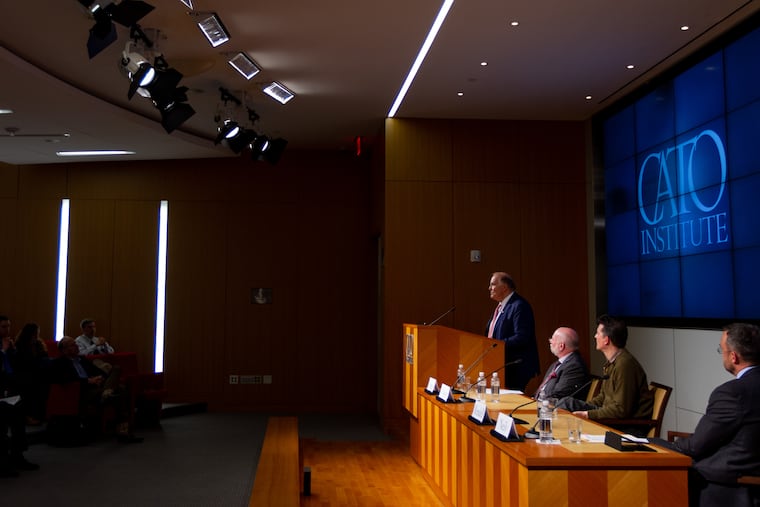Rendell: Feds have better things to do than go after supervised injection sites
Rendell said the “heart of his argument" for supervised-injection sites is that prosecutors can use their discretion when choosing which cases to try, and that the sites should be allowed to operate.

Former Gov. Ed Rendell says he believes the federal government has better things to do than sue a nonprofit aiming to open a supervised injection site in Philadelphia, which he sees as a live-saving measure to stem the tide of deaths during the city’s opioid crisis.
In an interview with The Inquirer, Rendell responded to U.S. Attorney William McSwain’s recent filing in the lawsuit against Safehouse, the supervised injection site nonprofit of which Rendell is a board member. He said McSwain was taking his remarks on the subject out of context.
McSwain cited a Cato Institute speech that Rendell gave this year, where Rendell said he knew supervised injection sites — where people in addiction can use drugs under medical supervision, be revived if they overdose, and access treatment — were “against the law.”
McSwain has argued that the law in question is a federal statute known as the “crack house statute,” which makes it a felony punishable by up to 20 years in prison to knowingly open or maintain any place for the purpose of manufacturing, distributing, or using controlled substances. He said he believed Rendell had admitted at the Cato Institute that Safehouse has no case.
But at the Cato conference, Rendell noted, he said he didn’t believe the authors of the crack house statute intended to make a place like Safehouse illegal — because it will not possess or distribute drugs — and added that legislative intent is an important part of the nonprofit’s case.
“Do we really want to put those people in jail? [Medical personnel] volunteering their time?” he said at the conference.
Rendell expressed a similar sentiment in Reason magazine this week.
“The senators and congressmen who developed the crack house statute never in a million years thought about volunteer medical personnel standing by while someone injects themselves, ready to … reverse the effects of the overdose,” he said in that interview. “Do you think they thought for a minute that that activity should be criminal?”
Speaking with The Inquirer, Rendell said the “heart of his argument" for supervised injection sites is that prosecutors can use their discretion when choosing which cases to try. That’s what happened when, as Philadelphia mayor at the height of the AIDS crisis, he decided to permit advocates to hand out clean hypodermic needles. State authorities had threatened arrests, but no one was prosecuted.
“The U.S. attorney could do Philadelphia a tremendous favor by prosecuting every case where a convicted felon is found in possession of a firearm,” he said. “Which is a better use of the U.S. attorney’s time and resources: Trying convicted felons, or arresting medical personnel who make sure someone who shoots up doesn’t die of an overdose?”
He also rankled at McSwain’s characterization of Safehouse’s religious freedom argument as too broad. The group has said that saving lives in the overdose crisis is an exercise of its members’ Judeo-Christian beliefs.
“It’s odd that a representative of a Trump administration would say that using religion as justification was overly broad, when the Trump administration supports using religion as a reason to not sell someone a wedding cake,” Rendell said.